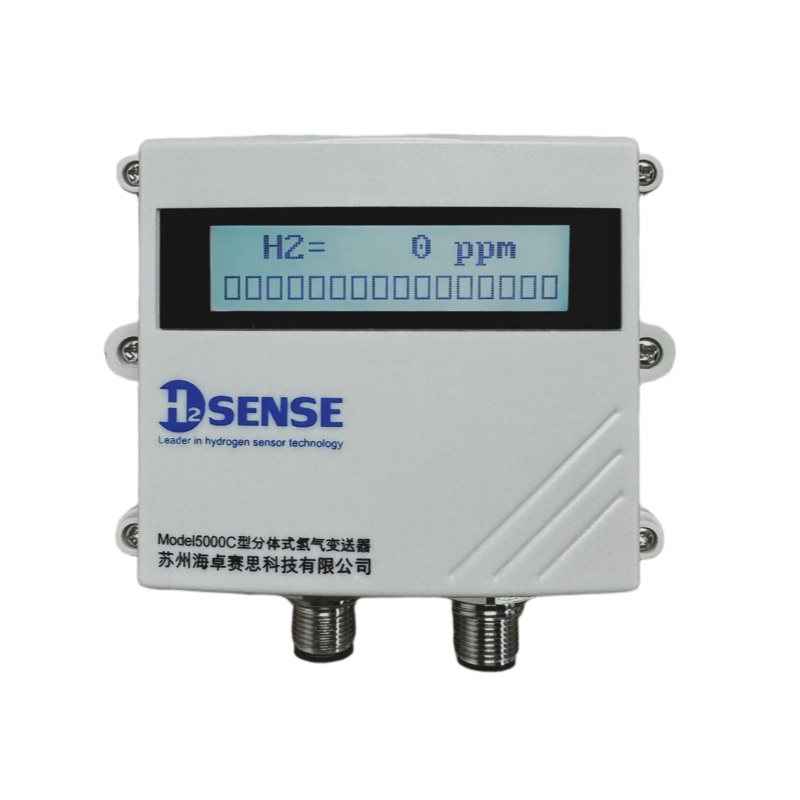Summarize
A hydrogen purity sensor plays a crucial role in ensuring the efficient and safe use of hydrogen in various industries. With the growing importance of hydrogen as a clean energy source, maintaining hydrogen purity is essential for optimizing performance, especially in hydrogen fuel cells and other energy applications. This blog will explore the functions of hydrogen purity sensors, how they work, their importance in different industries, and why selecting the right sensor for your application is key to ensuring optimal hydrogen performance.
How Does a Hydrogen Purity Sensor Work?
A hydrogen purity sensor is designed to measure the concentration of hydrogen in a gas sample and ensure that it meets the required purity standards for specific applications. These sensors work by detecting the presence of hydrogen and other gases, such as oxygen or carbon monoxide, which may contaminate the hydrogen supply.
The most common sensor technologies used in hydrogen purity sensors are electrochemical sensors, thermal conductivity sensors, and catalytic bead sensors. Each type has its unique advantages, depending on the application and the required sensitivity. Electrochemical sensors, for example, are known for their high accuracy in detecting hydrogen concentration, making them ideal for critical applications like fuel cells, where even small deviations in purity can affect performance.
The sensor generates an electrical signal proportional to the hydrogen concentration in the sample. This signal is then analyzed to determine if the hydrogen meets the necessary purity levels. In industrial applications, hydrogen purity sensors continuously monitor the purity of hydrogen used in various processes, ensuring that the hydrogen supply remains within safe and efficient operating parameters.
The Importance of Hydrogen Purity Sensors
1. Ensuring Optimal Performance in Fuel Cells
Hydrogen purity is critical for the proper functioning of fuel cells, which use hydrogen as a primary energy source. Fuel cells are highly sensitive to impurities in the hydrogen, as even small amounts of contaminants can reduce their efficiency, lifespan, and overall performance. A hydrogen purity sensor helps monitor the hydrogen quality and ensures that only pure hydrogen enters the fuel cell. This not only improves the performance but also enhances the longevity of the fuel cell, making it a vital component in the hydrogen economy.
2. Preventing Equipment Damage
Contaminants in hydrogen gas can cause significant damage to equipment that relies on hydrogen, such as compressors, turbines, and engines. Hydrogen purity sensors help prevent this by continuously monitoring the hydrogen supply and ensuring it remains pure. By detecting harmful contaminants early, these sensors protect expensive equipment and reduce the need for costly repairs or replacements.
3. Enhancing Safety Standards
In industrial settings, maintaining the purity of hydrogen is essential for safety. Hydrogen gas is highly flammable, and impurities like oxygen or carbon monoxide can increase the risk of explosions or fires. Hydrogen purity sensors play a key role in maintaining safe operating conditions by ensuring that the hydrogen supply is free from contaminants that could pose a danger to workers or the surrounding environment.
4. Optimizing Hydrogen Production and Storage
In hydrogen production and storage facilities, purity is a key factor in optimizing efficiency. A hydrogen purity sensor ensures that the produced hydrogen meets quality standards before being stored or transported. By continuously monitoring the purity of hydrogen during production, the sensor helps operators maintain optimal conditions for production, reducing waste and ensuring the hydrogen is ready for use in various applications.
Applications of Hydrogen Purity Sensors
1. Hydrogen Fuel Cells
In hydrogen fuel cells, purity plays a critical role in determining the efficiency and lifespan of the cell. Hydrogen purity sensors are essential in monitoring and ensuring that the hydrogen entering the fuel cell is of the highest quality. This helps avoid performance degradation caused by contaminants, ensuring that the fuel cell operates at its optimal efficiency.
2. Industrial Hydrogen Applications
Hydrogen is used in a variety of industrial processes, such as hydrogenation, metal refining, and the production of chemicals. For these processes to be efficient and safe, the hydrogen used must meet certain purity standards. Hydrogen purity sensors help ensure that the hydrogen used in these applications is free from harmful impurities, contributing to process efficiency and equipment longevity.
3. Hydrogen Storage and Distribution
In hydrogen storage and distribution systems, it is essential to ensure that hydrogen remains pure throughout the storage and transportation process. Hydrogen purity sensors are used to monitor the purity of hydrogen during storage and distribution, helping maintain the quality of the gas and ensuring that it is safe for use in downstream applications.
Why Choose H2SENSE for Your Hydrogen Purity Sensors?
H2SENSE is a trusted brand in the field of gas sensing technology, providing reliable hydrogen purity sensors that offer accurate and real-time measurements. Our sensors are designed to meet the highest standards of performance and durability, making them ideal for various industrial applications, from fuel cells to hydrogen production and storage.
1. High Accuracy and Reliability
At H2SENSE, our hydrogen purity sensors are built with precision and reliability in mind. We use advanced sensor technology to ensure that our sensors provide accurate, real-time data on hydrogen purity. This allows operators to make informed decisions about hydrogen quality, preventing inefficiencies or safety issues.
2. Customization for Specific Applications
We understand that different industries have unique requirements when it comes to hydrogen purity. H2SENSE offers customizable solutions that are tailored to meet the specific needs of your application, whether in fuel cells, chemical production, or hydrogen storage. Our sensors are designed to integrate seamlessly into your existing infrastructure, providing a simple and efficient way to monitor hydrogen purity.
3. Long-Term Durability
Our hydrogen purity sensors are built to withstand harsh industrial environments, ensuring long-term durability and low maintenance costs. We prioritize quality and reliability in every product we offer, helping our customers maintain the highest standards of safety and efficiency in their hydrogen applications.

Conclusion
Hydrogen purity sensors are essential for ensuring the safe and efficient use of hydrogen in various applications, from fuel cells to industrial processes. By accurately measuring hydrogen purity, these sensors help optimize performance, protect equipment, and enhance safety. When selecting a supplier for hydrogen purity sensors, it is important to choose a reliable provider that offers high-quality, accurate, and durable products. H2SENSE provides advanced sensor solutions that meet the highest standards, offering reliable monitoring of hydrogen purity to help you achieve optimal performance in your operations.












